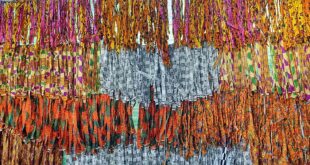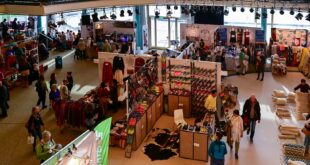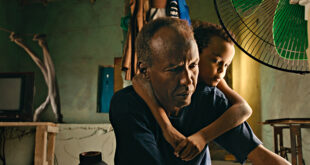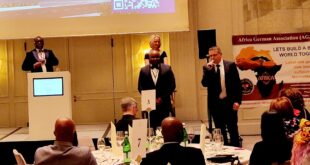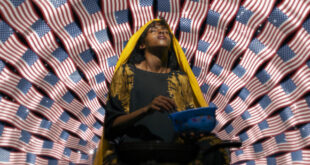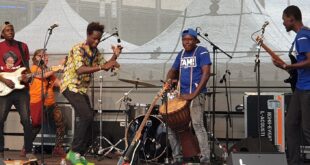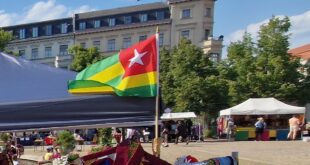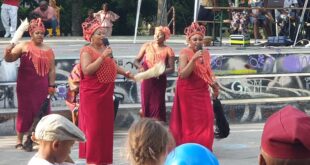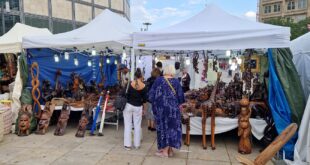Professor Jason Osai* writes on the lessons of the attack on Senator Ike Ekweremadu in the German city of Nuremberg in August for Nigerian citizens and leaders and the implication of the incident for civil society activism both at home and in the diaspora.
“He who travels to eat his ancestral yam in a foreign country should be ready for the wrath of Dike, the warrior of the seven seas and seven mountains,” so wrote Chinua Achebe, an Igbo man, in 1995. Located in a temperate region, six hours north of Igboland, Germany does not grow yam, neither does it grow palm trees from which palm oil is extracted to serve as the culinary companion of yam; same goes for every country in Europe.
The prophecy in that statement of more than a score years crystallized when Senator Ikechukwu Ekweremadu ventured into the enterprise of “eat(ing) his ancestral yam in [Germany]” where he came face to face with “the wrath of Dike the warrior” in the historic city of Nuremberg.
With a population of more than half a million, Nuremberg is the second largest city of the German Federal State of Bavaria after its capital Munich and the 14th largest city in Germany. History books tell us that it was in this city that the perpetrators of heinous crimes during Second World War were confronted with their crimes and were punished. It is, therefore, an uncanny coincidence that it was in this same city that Ekweremadu was confronted with his alleged docility or duplicity regarding the state of affairs in Nigeria when he went clad in apparel on which the Nigerian Coat of Arms was emblazoned.
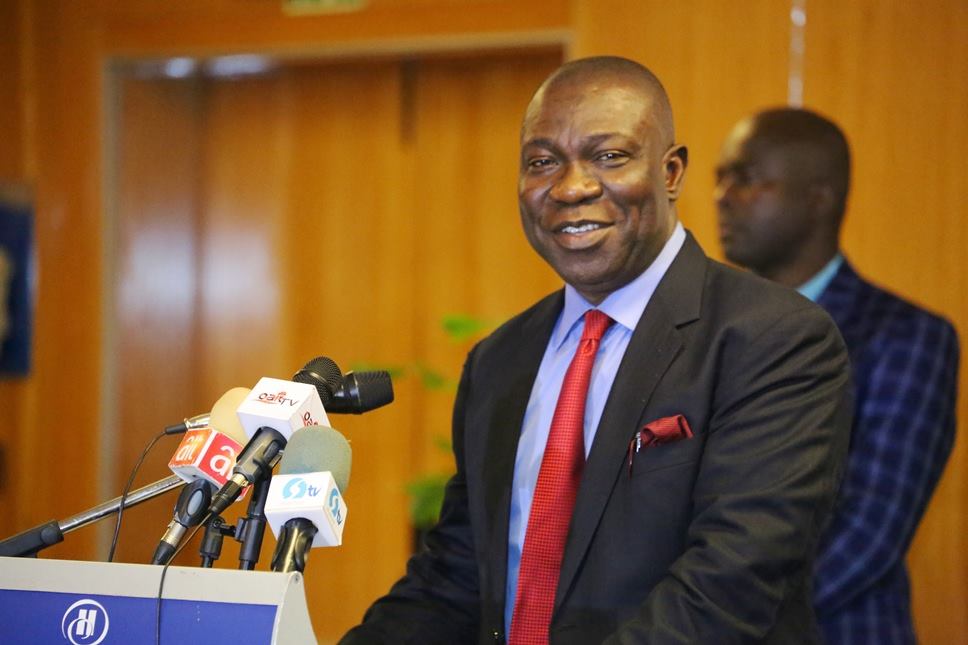
If Ekweremadu intended to show off or intimidate the audience with his apparel of Coat of Arms or for whatever reason, the joke was on him. The embarrassment of being violently rejected by his kinsmen is something that will haunt his conscience forever if he has one; sadly, conscience is a rarity amongst his ilk that are generally smitten with empathy deficit disorder (EDD).
Granted that prior to the experience of Ekweremadu, an Ivorian Minister suffered the same fate, albeit more violently, in Paris and that the then ailing President Muhammadu Buhari was picketed and heckled out of London and, more recently, picketed in Tokyo, the incident at Nuremberg has elicited reactions that have brought such actions to the front burner of national and international discourse on governance and responsible government with special reference to Africa.
Reacting to the incident at Nuremberg, Nigerians in Diaspora Organization (NIDO) Germany issued a press release condemning the act as “criminal and barbaric.” In a statement signed by its President, Dr. RosaLyn Dressman, and General Secretary, Femi Awoniyi, NIDOG decried the “reprehensible and contemptible act” and disassociates itself from what it referred to as “despicable and uncivilized behaviour.” However, NIDOG noted that “the current state of insecurity that pervades many parts of Nigeria is a source of deep worry amongst Nigerians in the Diaspora.”
On the other side of the divide, what is trending in the social media is overwhelming applause for Nigerians in the Diaspora who dared express themselves in the manner that is considered democratically unconventional. Luckily for the group in Nuremberg, such political protests are tolerated in Germany and other democratic polyarchies of the West.
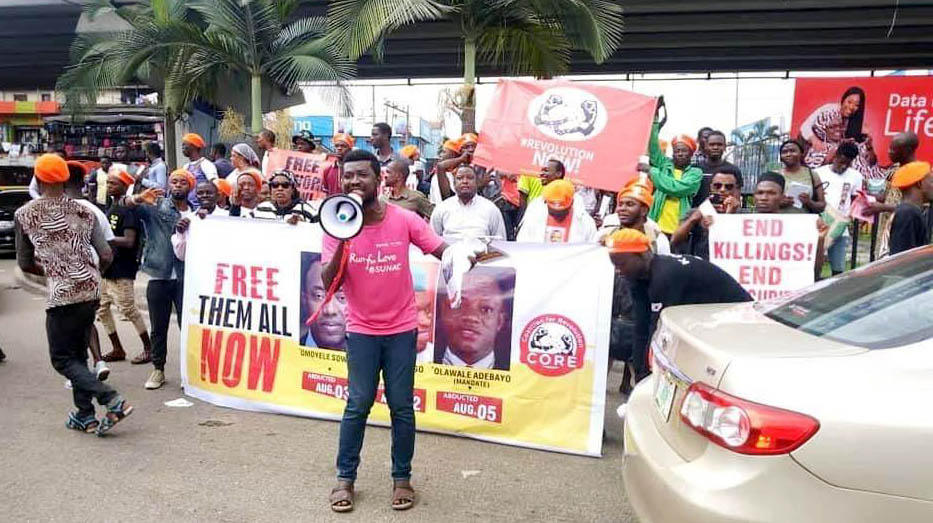
In consonance with this line of thought, the Nelson Mandela Human Rights Association has called for a travel ban on Nigerian Senators; speaking on behalf of the association, Frederic Odorige bemoaned a situation where Nigerian Senators earn more than the President of the United States yet foot drag to increase national minimum wage to a paltry N30,000 per month.
Either way, Nigerians deserve, desire and now demand better performance from government, especially in the area of security and infrastructure. While those that live within the jurisdiction of the Federal Republic of Nigeria may not be able to express themselves in the manner witnessed in Nuremberg, Nigerians in democratic polyarchies across the world utilize the privileges of those liberal societies in expressing opinions that are now brazenly suppressed in Nigeria.
Conversely, heckling and being plastered with rotten eggs and rotten tomatoes and even being grabbed and dumped into giant waste bins are part of the democratic culture of the polyarchies of the West; they come with the job.
Germany is a democratic polyarchy; in such societies, citizens and residents alike have the freedom of association and expression within the limits of the law. It is reported that Africans in the diaspora remitted about USD50bn in 2018 and out of this figure Nigerians remitted USD28.7bn; these remittances reflect the love Nigerians have if not for the country but for members of their families.
In European and American societies, it is only through hard work that people earn money and the system supports the individual by way of social security in times of need. Therefore, in remitting money home, which is a sacrifice, it becomes frustrating to know that the remittances are necessitated by a dysfunctional system that is insensitive to the needs of the people; realizing that the system is dysfunctional because authority figures brazenly misappropriate public funds, it becomes very irritating to see one of those authority figures travel overseas to celebrate new yam festival.
Now, knowing that Nigerian Senators legislated humongous sums in salary for themselves while rejecting a bill that called for N30,000 minimum wage would certainly enrage people who live in people-sensitive societies like Europe and America. It becomes a natural reaction to picket and heckle a person in the position of Ekweremadu.
Demonstrations, pickets etc. are generally planned to be peaceful; however, the phenomenon of de-individuation (also known as hivemind) easily infiltrates the process and it turns violent; this may be the case with the incident at Nuremberg.
The lesson to learn from that experience and the spreading bug of Nuremberg is that authority figures should realize that if Nigerians at home, in their characteristic docility, are not watching and cannot express themselves in far reaching manners, the average Nigerian in the diaspora incensed enough at the situation at home and would take advantage of every opportunity that presents itself to express himself or herself. What this calls for, is for authority figures to do what is right before God and man.
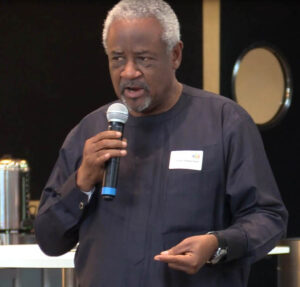
The bottom line is that authority figures should morph from exploiting the loopholes and weaknesses of the rule of law and the docility of Nigerians and opt for the rule of love towards inclusiveness in society and sustainable development. This requires creating the enabling economic environment that would greatly accelerate sustainable development and lead to the reversal of brain drain.
That way, the push factors that drive Nigerians into economic exile, migration or voluntary slavery will abate. Along with it will come courteous treatment for Nigerian dignitaries and public officers outside the shores of Nigeria.
* Prof Jason Osai is a professor of Development Studies and Head, Department of Political Science, Faculty of Social Sciences, Rivers State University, Port Harcourt, Nigeria.
 THE AFRICAN COURIER. Reporting Africa and its Diaspora! The African Courier is an international magazine published in Germany to report on Africa and the Diaspora African experience. The first issue of the bimonthly magazine appeared on the newsstands on 15 February 1998. The African Courier is a communication forum for European-African political, economic and cultural exchanges, and a voice for Africa in Europe.
THE AFRICAN COURIER. Reporting Africa and its Diaspora! The African Courier is an international magazine published in Germany to report on Africa and the Diaspora African experience. The first issue of the bimonthly magazine appeared on the newsstands on 15 February 1998. The African Courier is a communication forum for European-African political, economic and cultural exchanges, and a voice for Africa in Europe.
















